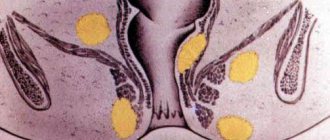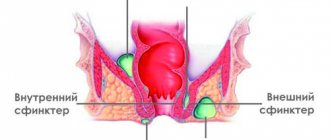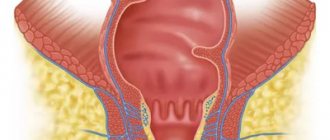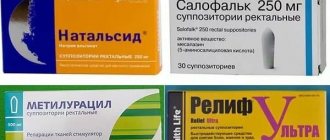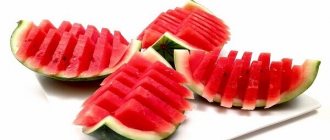Efficiency of application
Suppositories for paraproctitis are a form of medicinal substance for rectal use, which has the following local properties on the affected tissues:
- reduction of the inflammatory process;
- destruction of pathogenic microorganisms (antibacterial);
- relief of local pain syndrome (analgesic);
- acceleration of tissue regeneration;
- stopping bleeding in the presence of hemorrhoids or rectal fissures (hemostatic).
Undoubtedly, the big advantage of suppositories for paraproctitis is their direct effect on the lesion..
When a suppository is placed in the rectum, the medicinal substance included in its composition immediately enters the inflammatory tissue, realizing all its beneficial effects.
Some recommendations on how to use suppositories for paraproctitis in adults:
- it is necessary to place the suppository deep enough into the rectum, otherwise most of the medicinal substance will come out;
- after inserting the suppository, you need to be in a calm position for at least half an hour - preferably lying down;
- To enhance the effect, you can use tampons with antibacterial and anti-inflammatory ointments.
In addition to using medications, it is recommended to adhere to some rules: follow a diet that normalizes stool, give up bad habits, and also regularly monitor personal hygiene.
Indications for use
Suppositories are often prescribed as a comprehensive treatment for paraproctitis. The main indications for their use are:
- prevention of complications in the postoperative period (formation of fistula tracts, occurrence of relapses of the disease);
- impossibility of surgical treatment of paraproctitis (presence of severe concomitant pathologies in the chronic form of the disease);
- reduction of the inflammatory process in acute forms of the disease before surgery;
- patient refusal to open paraproctitis;
- the presence of hemorrhoids, rectal fissures;
- as an option for the primary treatment of children under one year of age in order to delay the timing of surgical intervention.
The dosage and course of treatment with suppositories depend on the size of the abscess, the severity of symptoms, the depth of the pathological process, as well as the general condition of the patient.
Types of suppositories for paraproctitis
There are many different suppositories used to treat paraproctitis. Some of them contain only medications, others contain substances of plant origin. The choice of a specific drug depends on the presence of certain indications. It should be remembered that suppositories must be used under the supervision of a physician.
Suppositories for symptomatic treatment
These drugs eliminate local pain, reduce tissue inflammation, and have a regenerative and some bactericidal effect.
| Drug name | Active substance | Pharmacological effect | Dosage |
| Ichthyol candles | Ichthammol (ichthyol) | Local anesthetic, regenerating, antiseptic; increases the tone of the vascular wall in the area of inflammation, improves blood circulation. | One piece at a time 2 times a day; course of treatment – 1-2 weeks. |
| Suppositories with propolis | Propolis | Bactericidal, local anesthetic, reparation, anti-inflammatory, antitoxic, phagocytic; enhances the effect of antibacterial drugs. | 1 piece each twice a day for 10 days; It is recommended to take the second course with a break of 2 months. |
| Anuzol | Xeroform, zinc sulfate, belladonna (belladonna) leaf extract. | Antiseptic, astringent (denaturing proteins, forms a protective film on the affected area, preventing the entry of pathogenic microorganisms), drying (reduces inflammation, preventing tissue exudation). | Depending on the severity of the disease, from 1 to 3 suppositories per day for a course of 10-14 days. |
| Suppositories with methyluracil | Methyluracil (dioxomethyltetrahydropyrimidine) | Regenerating (provides rapid granulation and epithelization of tissues), anabolic (accelerates the growth of new cells), immunostimulating. | Adults 2-8 suppositories per day, children – one piece. course 1-16 weeks. |
| Posterisan | Inactivated E. Coli (Escherichia coli) cells | Reparation, immunostimulating; increases the resistance (stability) of tissues to the effects of pathogenic microorganisms. | 1 piece each twice a day, and also after each act of defecation; Possible combined use with ointment. |
| Ultraproct | Fluocortolone, cinchocaine. | Anti-inflammatory, antipruritic, analgesic, antihistamine. | One suppository 1 time per day at night; course of treatment is 7-10 days. |
Any suppositories used for paraproctitis are inserted into the rectum after a cleansing enema or natural bowel movement; Before insertion, it is recommended to perform anal hygiene.
Antibacterial
Suppositories containing antimicrobial substances are prescribed in the preoperative period to patients suffering from chronic paraproctitis, as well as to patients after surgical treatment when their general condition worsens (fever, signs of intoxication of the body). Antibacterial suppositories fight this disease quite effectively, but they are used only as complex therapy with mandatory surgical intervention.
The most common suppositories for the treatment of paraproctitis are:
- Olestesin. The antibacterial effect is achieved with the help of the sulfonamide included in the composition - sodium etazol. The medicinal substance anesthesin has an analgesic effect, and sea buckthorn oil has an anti-inflammatory and hemostatic effect. Apply rectally 2 times a day.
- Proctosedyl. This drug is a combination drug, the components of which have an anti-inflammatory (reduction of swelling, itching, hyperemia), local analgesic effect. This product also improves microcirculation of affected tissues. The antibacterial effect is achieved due to the framycetin included in its composition. Suppositories are administered into the rectum 2 times a day for no more than one week.
- The destruction of infection in paraproctitis can be achieved by introducing tampons soaked in antibacterial ointments, such as Gentamicin, Levomekol.
If symptoms of paraproctitis are detected, you should immediately consult a specialist. Untimely and irrational treatment of this disease can lead to a number of serious complications.
Suppositories for the treatment of paraproctitis
The introduction of suppositories is carried out only after a thorough toilet of the external genitalia , perineum, and anorectal skin.
Suppositories are administered with clean hands. Ideally, the administration of suppositories is carried out after bowel movements. There are many rectal suppositories for various purposes , but many of them have a whole range of therapeutic effects: regenerating, restorative, healing, anti-inflammatory.
With antimicrobial component
As a rule, the spectrum of action of rectal suppositories is much wider than indicated in the annotation and purpose. The main group of drugs for local treatment are antibacterial and antimicrobial agents :
- "Proctosedyl" . Combined rectal suppositories with an antibiotic, anticoagulant and regenerating component. Active substances affect many pathogenic microorganisms, inhibiting their activity through the destruction of the bacterial membrane. The course of treatment is 10-14 days, after which the use of probiotics is indicated to restore the intestinal microflora. At the same time, “Proctosedyl” has a pronounced anti-inflammatory, moderate analgesic and antipruritic effect.
- " Olestesin" . A combined broad-spectrum drug based on sea buckthorn oil, etazol sodium, anesthesin. The product has an antimicrobial, hemostatic and hemostatic effect, moderately eliminates swelling, and restores affected mucous membranes. After a short course, the patient’s general condition improves, the level of leukocytes in the blood decreases, which indicates the cessation of the infectious process.
Additionally, you can make tampons with antibacterial liniments (Levomekol, Levosin). Antibacterial local treatment is often combined with the prescription of systemic antibiotics from the group of cephalosporins, macrolides, and azithromycin.
Broad spectrum
For the treatment of paraproctitis, the following rectal suppositories are prescribed, inexpensive and effective, with a pronounced broad-spectrum effect :
- Ichthyols . Suppositories based on natural ichthammol are a drug with anti-inflammatory, antibacterial, disinfecting and regenerating effects. The course of treatment is 10-14 days, however, with a slow decrease in symptomatic manifestations, treatment can be extended to a month. In the first days of the disease, 2-3 suppositories are administered, and if the dynamics are positive, the frequency of administration is reduced to once a day.
- Rectal suppositories with propolis . A natural, effective anti-inflammatory and disinfectant that has an additional softening and healing effect. The full course of treatment prevents inflammation, swelling, and the spread of infection throughout the intestinal tract. It is enough to use two suppositories per day to reduce the intensity of symptoms.
- Methyluracil suppositories . The drug has a wound-healing, regenerating and restorative effect. Suppositories reduce itching of the anus and skin of the perianal area, stop bleeding. The course of therapy is 12-21 days. Two suppositories are required per day, one application should be at night.
- "Anuzol" . A herbal preparation based on zinc, xeroform, belladonna extract, which has a regenerating, drying, hemostatic and hemostatic effect. The active components restore the function of the anal sphincter and normalize the condition of the lining of the rectum. "Anuzol" is especially suitable in the postoperative period. The course of treatment is 14 days, requiring the administration of two suppositories per day.
- "Posterizan" . The drug has a moderate anti-inflammatory effect and perfectly prevents ulcerative-erosive damage to the intestinal mucosa. Used for hemorrhoids, cracks in the mucous membranes of the rectum. The antimicrobial effect is enhanced when taken simultaneously with oral antibiotics.
- "Ultraproct" . The drug contains hormonal and anesthetic components, which provides a pronounced decongestant, antibacterial, regenerating and analgesic effect. Suppositories are inserted into the rectal canal 2-3 times a day. A good therapeutic effect has been proven in combination with other drugs.
Medicines should be taken only as prescribed by a doctor , according to the indicated course and dosage regimen. This is the only way to achieve the desired therapeutic result and avoid complications.
Suppositories for paraproctitis
Paraproctitis, both acute and chronic, must undergo surgical treatment. An acute process must be operated on urgently, a chronic process must be operated on as planned, but the timing of the operation cannot be delayed for long. However, in some cases conservative treatment is also necessary.
First of all, it is necessary:
- In a complex of postoperative measures - to prevent the development of complications.
- If it is impossible to perform surgery for chronic paraproctitis - if there are severe concomitant diseases in the acute stage. Once the symptoms have resolved and the person’s condition has improved, surgery can be performed.
- When treating children under one year of age, surgical intervention is most often postponed until the age of 1-2 years, if the paraproctitis is not acute.
- With concomitant hemorrhoids and rectal fissures.
In such cases, suppositories with antibiotics can be used for paraproctitis. What preparations in the form of suppositories can be used?
- Ichthyol suppositories can also be used in children. They have anti-inflammatory, healing, disinfecting effects. Use once a day at night.
- Suppositories with propolis - have analgesic, disinfecting, healing effects. Contraindicated in case of allergies to bee products; not recommended in children due to the high risk of allergies. Apply once a day.
- Suppositories with methyluracil - have a healing, restorative effect on tissue. Can be used in combination with treatment after surgery. Methyluracil is a stimulant of local immunity, improves tissue nutrition, and promotes regeneration. Apply once a day.
- Anuzol - these suppositories contain belladonna, zinc sulfate, xeroform. Zinc sulfate has an anti-inflammatory and drying effect, xeroform is an antiseptic, and belladonna increases sphincter tone, which is useful both for hemorrhoids and after surgical treatment of paraproctitis, especially after operations with a high risk of insufficiency of the rectal obturator apparatus.
- Posterisan suppositories have an immunostimulating effect and produce a weak anti-inflammatory effect. It is good to use for hemorrhoids and rectal fissures in combination with other remedies.
- Ultraproct suppositories contain a hormonal drug and a local anesthetic. They have anti-allergic, good anti-inflammatory and analgesic effects. Can be used at the onset of the disease if it is impossible to see a doctor.
Anti-inflammatory, antiseptic, regenerating and analgesic rectal suppositories
In parallel with the use of antibacterial agents for local and systemic effects, in the treatment of paraproctitis it is advisable to prescribe suppositories that have other beneficial properties.
With their help, you can achieve a significant improvement in the patient’s condition, relieve the inflammatory process, prevent exacerbation of a chronic lesion and speed up the patient’s recovery after surgery.
- Ichthyol suppositories have a good therapeutic effect on paraproctitis. They are mainly used in the treatment of diseases in children. They have a gentle and at the same time effective effect, relieving pain and swelling of tissues adjacent to the pathological focus. Reduce the activity of the inflammatory process and stimulate microcirculation. As a result, the nutrition of each cell improves, which helps to increase local immunity. An additional advantage is the antiseptic effect. Thanks to this, even in the presence of microdamages on the rectal mucosa, the risk of bacterial infection, which can aggravate the course of paraproctitis by developing complications, is minimized.
- Propolis suppositories are highly effective due to the main active ingredient. Bee products have long been famous for their healing properties. Rectal suppositories with propolis have an analgesic, antiseptic and powerful healing effect. However, they must be used very carefully, since propolis is a highly allergenic substance.
You should make sure that there is no hypersensitivity to bee products to avoid the development of complications.
- In the complex treatment of paraproctitis, it is advisable to use drugs that promote rapid healing of damaged tissues. Rectal suppositories containing Methyluracil have a regenerating and restorative effect.
- In case of severe pain syndrome, it is necessary to include drugs with glucocorticosteroids in the treatment regimen. Hormonal drugs have powerful analgesic and analgesic properties. And thanks to the anti-allergenic effect, they help reduce swelling of the mucous membrane.
Antibiotic suppositories for paraproctitis
Antibacterial drugs are sometimes prescribed after surgery for paraproctitis, as well as during preparation for planned surgery for chronic paraproctitis.
Paraproctitis cannot be cured with antibiotic suppositories alone. You should consult a doctor at the first opportunity. So, what drugs can be used:
- Proctosedil suppositories made of antibacterial, analgesic, hormonal and other components. Framycetin acts as an antibiotic in these suppositories. It acts on staphylo- and streptococci, Klebsiella, enterobacteria, pseudomonas and other microorganisms. Suppositories must be administered 2 times a day.
- Olestezin candles are based on sea buckthorn oil, which itself has many beneficial properties: healing, anti-inflammatory, hemostatic. The antibacterial component of suppositories is sodium sulfonamide etazol. It has both antibacterial and antifungal effects. In addition, the suppositories contain anesthesin, a local anesthetic. Administer up to 2-3 suppositories 2 times a day.
- cotton swabs with antibacterial ointments into the rectum
All these drugs should not be used independently for acute and chronic paraproctitis. It is also necessary to remember that these diseases can only be cured surgically. Suppositories for paraproctitis are rarely used. More often they are necessary for the treatment of hemorrhoids and anal fissures. These diseases need to be treated because... they, in turn, often lead to paraproctitis of various forms and courses.
Traditional methods of treating paraproctitis with homemade candles
Local treatment of the inflammatory process in the subcutaneous fatty tissue in the anal area should be carried out using not only pharmaceuticals, but also alternative therapy.
For the purpose of local impact on the pathological focus, you can use the healing properties of some natural remedies, in particular, propolis, badger and goat fat, mumiyo, potatoes, etc.
Recipe 1
The easiest way to make a candle is from raw potatoes. To do this, you need to cut a small rectangular piece from the tuber. Its size should correspond to a standard rectal suppository. Potatoes have anti-inflammatory, enveloping, wound-healing and analgesic effects. The frequency of use of the suppository is 1-2 times a day, depending on the patient’s condition.
Recipe 2
Since ancient times, badger fat has been successfully used in the treatment of many diseases and is in great demand. In order to enhance its therapeutic effect, propolis can be added to it.
To prepare a candle, you need to mix both components in a 2:1 ratio, place in a water bath and simmer for 2 hours. After cooling, form small candles and place in the refrigerator until completely cooled. The course of treatment is at least 1 month.
Thanks to the huge amount of vitamins, microelements and biologically active substances included in the product, badger fat has anti-inflammatory, antibacterial, antioxidant, wound-healing, analgesic, restorative and regenerative properties. Helps activate local immunity. The addition of propolis to the suppository guarantees an enhanced therapeutic effect from the use of this medicine.
You can independently make rectal suppositories based on mumiyo. This remedy has anti-inflammatory and analgesic effects. Stimulates local immunity, increasing the body's own defenses.
When is it best to postpone surgery?
According to experts, conservative treatment helps alleviate the condition, but very rarely leads to a complete recovery. Drug therapy is possible in the absence of an active source of inflammation or during remission.
Conservative treatment methods are used in cases such as:
- the presence of hemorrhoids or anal fissures,
- the child has not reached one year of age,
- the presence of severe concomitant diseases in the relapsing stage,
- prevention of complications after rectal surgery,
- the period of patient preparation for surgery,
- inability to go to a medical facility.
At the first opportunity, surgical treatment of paraproctitis is recommended, because it is impossible to remove purulent contents with the help of medications, suppositories or traditional medicine methods alone.
Rectal suppositories are the best option
To eliminate the symptoms of the disease and improve the general condition, it is best to use rectal suppositories for the following reasons:
How is surgery performed for paraproctitis?
- When introduced into the rectum, under the influence of heat emitted by the body, the drug quickly melts, resulting in an easily spreading mass.
- The active substance released from the suppository acts locally and is able to penetrate deep into the tissue.
Rectal suppositories for paraproctitis are used in a variety of ways; suppositories with herbal components and those completely medicated are equally useful for the patient.
Self-medication is unacceptable; strict supervision by a specialist is necessary to prevent the development of serious complications.
Variety of suppositories on the pharmaceutical market
For the treatment of paraproctitis, suppositories are suitable, which contain the following medicinal components:
- Ichthyol. Suppositories with this active substance have a wound-healing, anti-inflammatory and antiseptic effect. They can be used to treat not only adults, but also small children.
- Propolis. In addition to the healing and disinfecting effect, candles with honey extract have an analgesic effect.
- Methyluracil. This medicinal substance promotes faster tissue regeneration.
- Posterized. For paraproctitis, suppositories are used as an immunostimulating drug.
- Ultraproct. Suppositories have a pronounced anti-inflammatory and analgesic effect.
- Anuzol. The suppositories contain xeroform, zinc sulfate and belladonna. The drug has a drying and antiseptic effect, and also promotes faster resorption of inflammation and restoration of sphincter tone.
The latter remedy is potent, so they should be used only as prescribed by a doctor and strictly under his supervision.
Rectal suppositories containing an antimicrobial component
Paraproctitis is a local inflammation in the subcutaneous fat tissue, provoked by pathogenic microorganisms. Therefore, conservative treatment is based on the use of suppositories with antibiotics. With their help, you can neutralize the effect of pathogenic bacteria and achieve recovery of the patient or relieve the severity of clinical symptoms.
As a rule, candles have a complex composition, so their spectrum of action is much wider. The most popular suppositories for paraproctitis:
- Proctosedyl. A combination drug that contains a broad-spectrum antibiotic, a glucocorticosteroid, an anticoagulant and other components. Due to this, when used in the treatment of paraproctitis, Proctosedyl has an antimicrobial, analgesic, anti-inflammatory, antipruritic, hemostatic, restorative effect.
- Olestesin. A complex drug with anti-inflammatory, analgesic, hemostatic, wound-healing and regenerating effects. After use, the patient’s condition improves significantly, as one of the main symptoms—severe pain—goes away. In addition, the intensity of the pathological process decreases.
Antibacterial drugs
In cases where rectal surgery is to be performed, or there is a postoperative period, the use of rectal suppositories with antibiotics is indicated:
List of the best inexpensive and effective suppositories for hemorrhoids
- Olestesin, which contains sodium sulfanilamide etazol, sea buckthorn oil and anesthesin,
- Proctosedyl with framycetin as an active component, also contains anesthetics and hormones.
In the most extreme cases, cotton swabs soaked in antibacterial ointments like levosin or levomekol can be used as a simple and affordable remedy.
Self-treatment of paraproctitis with drugs containing antibiotics is unacceptable; uncontrolled use most often leads to serious, sometimes irreversible, consequences.
The effectiveness of rectal suppositories
Rectal suppositories have a number of advantages over other forms of medications:
- ease and simplicity of administration, availability (over-the-counter from pharmacy chains);
- direct effect of the active components immediately on the inflammatory-infectious focus;
- minimal risk of side effects;
- rapid relief of symptoms;
- entry into the systemic bloodstream in small quantities, which is important during pregnancy, lactation, and organ failure;
- exclusion of traumatic and irritating factors on the gastric mucosa.
Attention ! Among the disadvantages are local irritant reactions, dirtying of linen during use (you need to put a sanitary pad), allergic reactions with individual intolerance to the active components. In most cases, treatment with rectal suppositories is easy, without complications or reactions from the body.
Complications with paraproctitis
The most dangerous complication, threatening a person’s health and even life, is the melting of the purulent contents of the intestinal walls, the vagina in women, and the urethra.
Sometimes the following happens:
- the inflammatory process spreads higher along the intestine, as a result of which the contents enter the abdominal cavity and peritonitis develops.
- with frequent relapses of the disease, scars may form in the subcutaneous tissue around the rectum, which subsequently causes deformation of the sphincter and anal canal. As a result, there is difficulty in defecation.
Despite the intimacy of the disease, you should not delay a visit to a specialist.
Timely and adequate treatment of paraproctitis, as well as compliance with medical recommendations, can stop the inflammation in the early stages and prevent the development of unpleasant consequences.
What is paraproctitis
Paraproctitis is an inflammation of the membranes of the rectum with sharp pain in the anus , a pressing sensation in the perineum and above the pubic bone, hyperthermia, and a disorder of excretory function.
The disease is dangerous due to the spread of infection to other parts of the intestine , damage to anatomically distant internal organs through the systemic bloodstream. With timely treatment, suppositories are enough to relieve inflammation and symptoms and prevent serious complications.
The code for paraproctitis according to ICD-10 is K61 “Abscess of the anus and rectum.”
Signs
Symptoms of acute paraproctitis in adults and children are always vivid; patients complain about the following conditions :
- temperature increase;
- distension in the intestines;
- disturbance of stool and urination;
- discharge from the rectal canal (abundance of purulent mucus, blood, exudative component);
- irritation of the anus due to frequent urges and discharge.
The chronic form is caused by a long course of paraproctitis or the lack of adequate therapy for the primary pathological process. When the disease becomes chronic, the clinical picture is less intense and resembles any other disease of the gastrointestinal tract.
Given the delicacy of the clinical situation, very often people turn to a doctor already at the stage of serious complications requiring surgical intervention.
Attention ! Complications associated with paraproctitis are associated with active inflammation. The main complications are perirectal fistula, sepsis, spread of infection to the genitourinary system.
